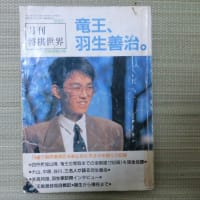Beaver Country Timesより抜粋。
Does Musami Kuwata have anything left? On the surface, the answer would appear to be no.
The 38-year-old right-hander signed by the Pittsburgh Pirates this week after spending the past 21 seasons with the Tokyo Yomiuri Giants of the Japanese Central League had 173 career wins in his native country but only nine in the last four injury-plagued years.
There is very recent precedent of a struggling veteran Japanese pitcher turning his career around with a move to the United State. Takahasi Saito notched a club-high 24 saves in helping the Los Angeles Dodgers to the wild-card playoff berth in the National League as a 36-year-old rookie just two years removed from posting a 7.71 ERA for the Yokohama BayStars.
Notice, however, that Saito’s turnaround came on the West Coast. In fact, almost all of the Japanese players who have jumped to the major leagues since Hideo Nomo unlocked that door in 1995 have.
Nomo started the trend by winning National League Rookie of the Year honors in ’95 by posting the first 13 of his 123 wins in a career than ended last year. Ichiro Suzuki, Kaz Sasaki, Kenji Johjima and Shiggy Hasegawa all had successful stints with Seattle, while Akinori Otsuka had a big rookie season out of San Diego’s bullpen in 2005.
Japanese players who have spent the majority of their careers on the East Coast, which we will consider the Eastern time zone, have struggled for the most part.
Pitcher Hideki Irabu and second baseman Kaz Matsui both came to New York amidst great fanfare but bombed miserably. Irabu went a lackluster 34-35 in six major-league seasons, three with the Yankees, while Matsui hit just .243 with 11 homers in three seasons with the Mets before being traded to Colorado late this past season.
Pitchers like Tomo Ohka, Masato Yoshii, Satoru Komiyama, Takashi Kashiwada have made little impact in the East. In fact, Yankees outfielder Hideki Matsui has been the only star east of the Mississippi, though his .297 batting average and 78 homers in four seasons hasn’t exactly put him on the fast track to Cooperstown.
The general consensus among observers of Japanese baseball is that players in that country are more likely to succeed on the West Coast where there is a greater Asian-American population and culture. Indeed, it will be most interesting to see how Kuwata adjusts to Pittsburgh, where the number of Asians is small and the amount of Japanese restaurants can be counted on one hand.
Kuwata, though, picked Pittsburgh by his own volition, over potentially more lucrative offers from Boston and the Los Angeles Dodgers.
“I felt I would be most comfortable with the Pirates,” he told reporters in Japan after signing.
---
確かにメッツは、日本人選手の成功が少ない。実力が衰えた桑田は、西海岸でも、どこでも通用しないと思う。まず、マイナーから抜け出せるかが問題だ。
Does Musami Kuwata have anything left? On the surface, the answer would appear to be no.
The 38-year-old right-hander signed by the Pittsburgh Pirates this week after spending the past 21 seasons with the Tokyo Yomiuri Giants of the Japanese Central League had 173 career wins in his native country but only nine in the last four injury-plagued years.
There is very recent precedent of a struggling veteran Japanese pitcher turning his career around with a move to the United State. Takahasi Saito notched a club-high 24 saves in helping the Los Angeles Dodgers to the wild-card playoff berth in the National League as a 36-year-old rookie just two years removed from posting a 7.71 ERA for the Yokohama BayStars.
Notice, however, that Saito’s turnaround came on the West Coast. In fact, almost all of the Japanese players who have jumped to the major leagues since Hideo Nomo unlocked that door in 1995 have.
Nomo started the trend by winning National League Rookie of the Year honors in ’95 by posting the first 13 of his 123 wins in a career than ended last year. Ichiro Suzuki, Kaz Sasaki, Kenji Johjima and Shiggy Hasegawa all had successful stints with Seattle, while Akinori Otsuka had a big rookie season out of San Diego’s bullpen in 2005.
Japanese players who have spent the majority of their careers on the East Coast, which we will consider the Eastern time zone, have struggled for the most part.
Pitcher Hideki Irabu and second baseman Kaz Matsui both came to New York amidst great fanfare but bombed miserably. Irabu went a lackluster 34-35 in six major-league seasons, three with the Yankees, while Matsui hit just .243 with 11 homers in three seasons with the Mets before being traded to Colorado late this past season.
Pitchers like Tomo Ohka, Masato Yoshii, Satoru Komiyama, Takashi Kashiwada have made little impact in the East. In fact, Yankees outfielder Hideki Matsui has been the only star east of the Mississippi, though his .297 batting average and 78 homers in four seasons hasn’t exactly put him on the fast track to Cooperstown.
The general consensus among observers of Japanese baseball is that players in that country are more likely to succeed on the West Coast where there is a greater Asian-American population and culture. Indeed, it will be most interesting to see how Kuwata adjusts to Pittsburgh, where the number of Asians is small and the amount of Japanese restaurants can be counted on one hand.
Kuwata, though, picked Pittsburgh by his own volition, over potentially more lucrative offers from Boston and the Los Angeles Dodgers.
“I felt I would be most comfortable with the Pirates,” he told reporters in Japan after signing.
---
確かにメッツは、日本人選手の成功が少ない。実力が衰えた桑田は、西海岸でも、どこでも通用しないと思う。まず、マイナーから抜け出せるかが問題だ。











※コメント投稿者のブログIDはブログ作成者のみに通知されます